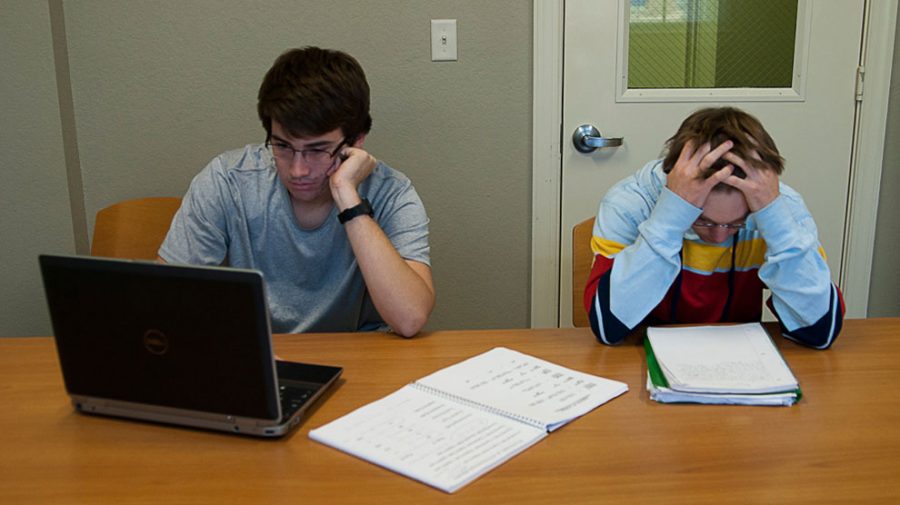You might think you’ll bounce back from all those sleepless nights, but many in the UA psychology department suggest they could contribute to mental health problems like depression and schizophrenia.
“The more stress you put on the system, you’re going to have something break down,” said Justin Thomas, a graduate student majoring in psychology and assistant at the Office of Health Promotion and Wellness.
Trying to make the grade while maintaining a social life, many students choose to sacrifice sleep to accomplish everything, but Thomas said sleep is as necessary as food and water.
“The reality is that most adolescents need 10 hours of sleep a night,” he said. “If you’re only getting five hours of sleep and you need 10 hours, you’re only getting 50 percent of what you need.”
He said by spreading themselves too thin, students could develop other health problems.
Thomas said it’s not only classes that cause stress, but also environmental factors. Among others, family and outside responsibilities pile up to create an overwhelming semester.
“I think a lot of times people tend to neglect self-care,” Thomas said. “They don’t take time to relax. They don’t take time to exercise. They don’t take time to eat well.”
He said the first step toward easing anxiety is to learn your limits and analyze how much you can feasibly handle.
“Be honest about your situation,” he said. “If you take too much on, you’re not going to do anything well.”
He recommended students make small goals instead of mirroring New Year’s resolutions, because things like walking across campus once a day or getting enough sleep for a week can have dramatic effects on your mood and well-being.
Maya Moss, a junior majoring in accounting, reduced her stress this semester by cutting her class schedule down to 12 credit hours. She also makes sure to plan a schedule.
“I’m very organized,” she said. “I’m not spontaneous at all.”
Jessica Vickery, assistant director of Health Education and Promotion and Health Hut advisor, said students should also exercise regularly.
“Exercise releases endorphins so your body feels better, and it actually helps you sleep better at night,” she said.
She also recommended a diet full of nutrients, which should come from food since supplements aren’t fully reliable.
She said different things work for different people, so some students may need to talk or go out with friends to decompress.
Michael Forst, a junior majoring in economics, uses all three methods. He attributed his stress to school, his job and activities, and, this week, fear of losing to Tennessee. With the latter resolved, he still has to focus on the others.
“I reduce stress by spending time with friends, playing sports and going running,” he said.
Both Thomas and Vickery recommend seeking help from the counseling center and employing muscle relaxation techniques, which students can learn more about by emailing Healthy Hut at [email protected].
Students can also request the “Daily Hour Organizer” and the “Daily Stress Diary,” which are other tools Vickery recommends.
Vickery said the Health Hut would cover mental health all week. She encouraged students to stop by to enter fun giveaways and to create stress balls and buttons.
“We are more than willing to get students the resources they need or point them in the right direction if we don’t have any resources on hand,” Vickery said.








